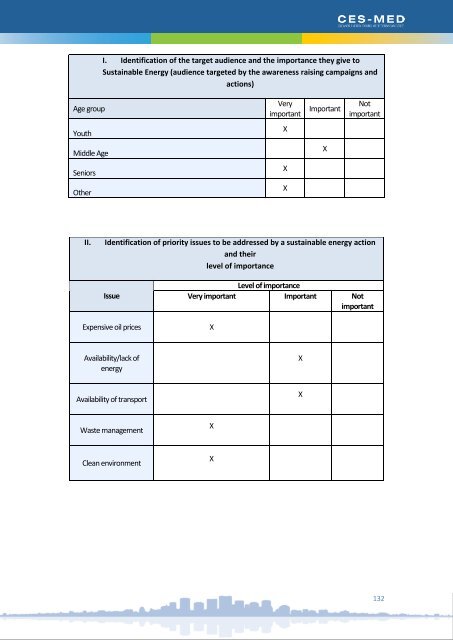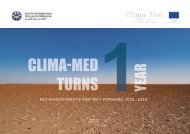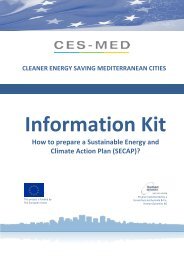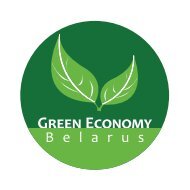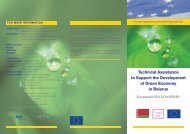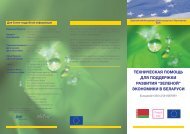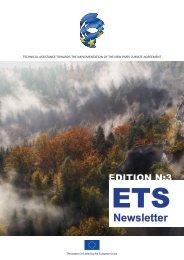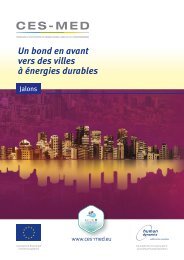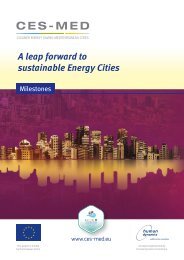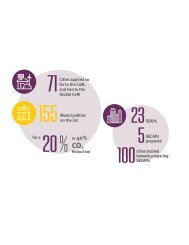1711_SECAP Karak - SET
You also want an ePaper? Increase the reach of your titles
YUMPU automatically turns print PDFs into web optimized ePapers that Google loves.
5.4 #4 - Bio Waste Management<br />
Bio Waste Management - # No 4<br />
1. General Presentation<br />
Location<br />
Al-<strong>Karak</strong><br />
Governorate<br />
Start<br />
date<br />
TBD<br />
Project<br />
Lifetime<br />
20 years<br />
Project Owner / Lead Actor<br />
Al-<strong>Karak</strong> Greater Municipality<br />
Contact person<br />
Eng. Fatima Kafaween<br />
Eng.fatima@yahoo.com<br />
Summary of the Action<br />
The solid waste issue gained significant attention in recent years, not only due to its environmental impacts, but also for its social<br />
and economical consequences. The Municipality service operates 30 trucks with compactors (on the municipality perimeter).<br />
This service collects 109,500 tons/year. This represents 2.63 kg per capita / per day in the city and in the municipality.<br />
Waste composition breakdowns as follows: 62% organic-waste – 27% carton and plastic, the remaining part (11 %) being a mix<br />
that cannot be recycled.<br />
The total amount of waste collected represents around 300 tons/day from the municipality region and goes every day to the Al-<br />
<strong>Karak</strong> Landfill. The methane currently released to the atmosphere is 2,527 ton/yr. This quantity equals to 63,181 ton/yr of<br />
equivalent CO2, according to the guidelines where the conversion factor from methane to carbon dioxide equivalent is 25.<br />
Short-term actions<br />
The Municipality is committed to work on reducing waste to be collected as the major solution to reduce energy consumption<br />
generated by waste management.<br />
The Municipality will continue developing public awareness to reduce waste generation, promote recycling and separation. The<br />
idea is to draw experience from the pilot project to then be extended to the entire city.<br />
Long-term actions<br />
The municipality is planning to separate the biomass to produce bio-fertilizer. Biological treatment will be used to treat the<br />
biomass and produce bio-fertilizer.<br />
The bio-fertilizer plant will reduce about 31,338 tn Co2 eq annually by converting the bio organic waste to bio gas and fertilizer.<br />
CO2 Saving from the project<br />
Annual CO2 emission from the municipal solid waste (tn CO2/year) 63,181<br />
39,172<br />
Annual CO2 emission from Municipal Bio (Organic) Waste<br />
(62% of total emissions)<br />
Typical CO2 emission reduction by Biogas (%)* 80%<br />
7,834<br />
CO2 emissions from utilizing the biogas in electricity generation (tn CO2/year) 20% of the organic waste emissions<br />
Annual CO2 saving (Tn CO2 / year) 31,338<br />
Also the municipality will separate the glass and sell it to be recycled.<br />
119


